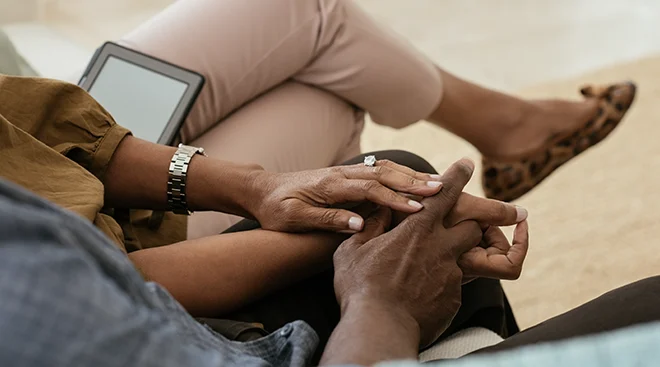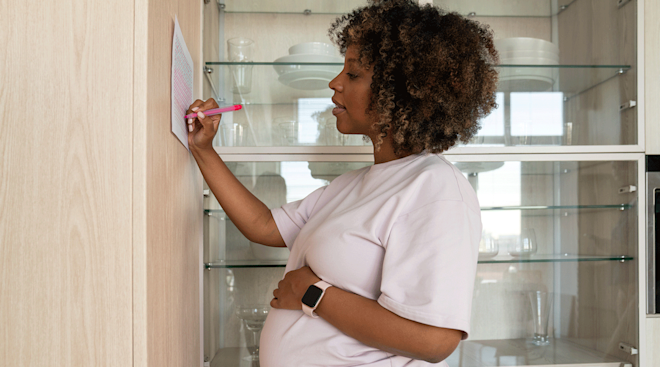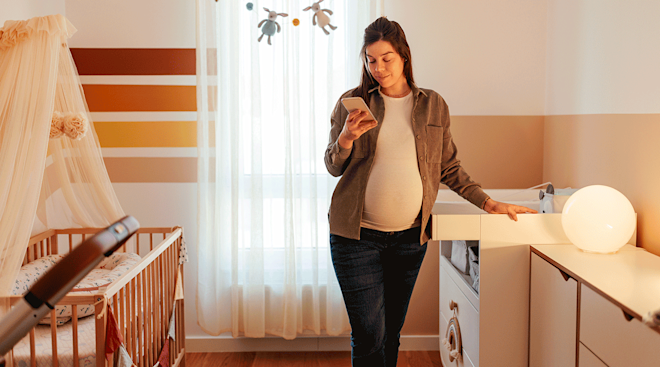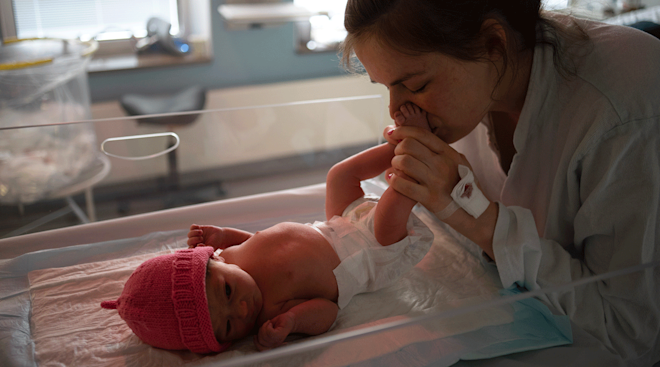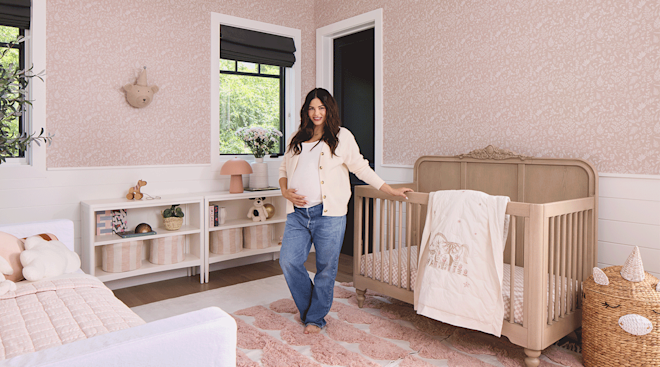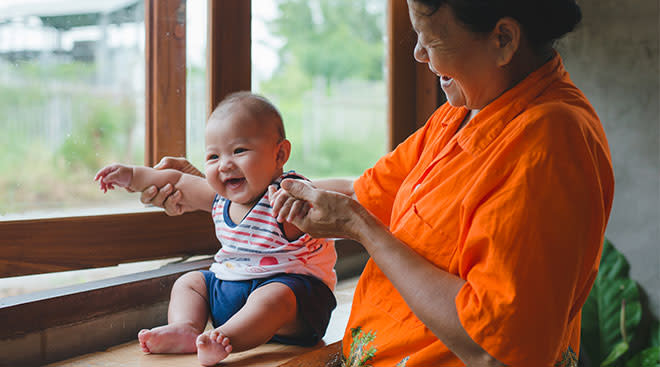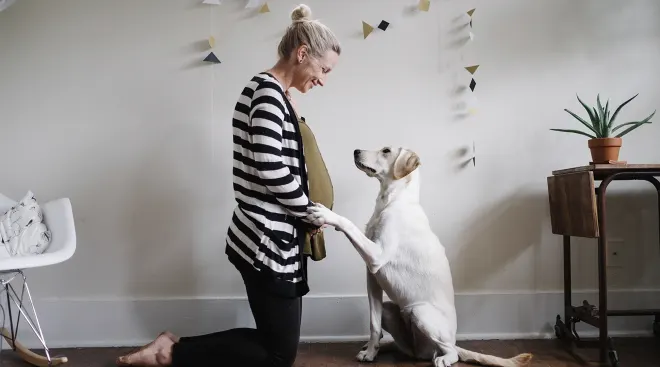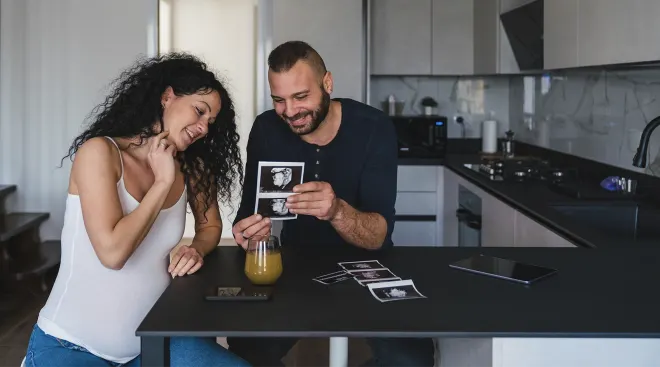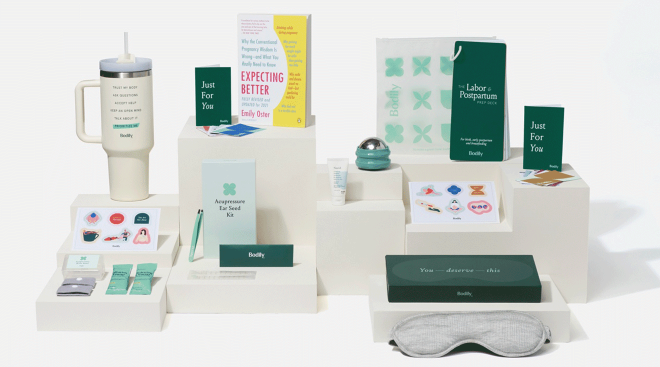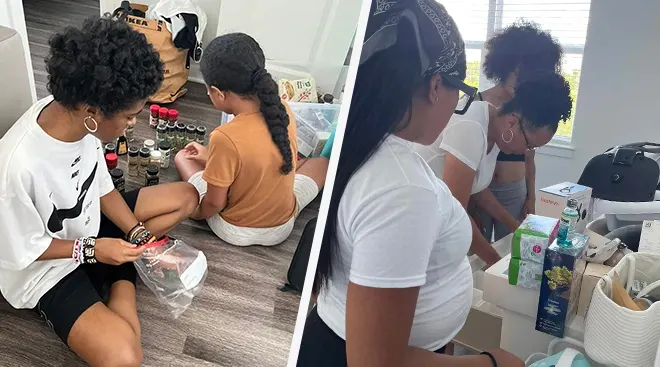The Most Important Thing to Bring With You to Prenatal Appointments
This article is part of The Bump’s Doctor Spotlight series featuring medical professionals who are dedicated to supporting and preserving Black maternal health. These doctors share their experiences, insights and advice to help guide and empower women of color who are planning or navigating pregnancy.
Even a routine visit to your doctor’s office can feel overwhelming at times—especially when you’re pregnant or trying to conceive. You’re likely bursting with questions and staggering under the avalanche of information. You may even be struggling to feel heard and wondering whether your provider is truly the right fit. Advocating for yourself, particularly as a Black parent-to-be, is critical. But what is the best way to go about it? We checked in with Temeka Zore, MD, an ob-gyn and fertility specialist, to learn more about her practice, her work in supporting Black maternal health and her advice for women of color as they navigate their path to parenthood. (Hint: There’s one thing you shouldn’t forget as you head out for a checkup.)
The Bump: Tell us a bit about your practice and the patients you serve.
Temeka Zore: I am a reproductive endocrinologist and infertility specialist (long name for a fertility doctor!) and I practice at Spring Fertility in San Francisco, California. I see individuals and couples interested in building their family either now or later. Additionally, I see women with endocrine abnormalities such as irregular periods, thyroid/prolactin disorders, etc. I absolutely love being able to educate people on their reproductive health as there are a lot of misconceptions out there when it comes to fertility.
TB: As an ob-gyn and fertility specialist, what challenges do you see Black parents-to-be facing as they look to grow their families? What advice do you have to help people avoid or work through them?
TZ: I find that there are a lot of misconceptions regarding Black patients and fertility. There are a lot of stigmas placed on Black individuals and couples seeking information or assistance for infertility, and I find that directly speaking to those stigmas is important. The other factor is that studies have shown Black women to be almost half as likely to seek out reproductive care compared to white women for a variety of reasons, including access to care and lack of trust in their providers. My advice is to find a provider you trust and to be open to the experience and the different paths to parenthood that may exist for you.
TB: How can women of color best advocate for themselves from the very start of their journey to parenthood?
TZ: Bring a trusted friend or family member to appointments, take notes, ask questions and seek a second opinion if you need to. Doctor visits can be filled with a lot of information, numbers and statistics, and it’s not easy to remember it all. Some studies show that patient recall of medical facts is less than 50 percent. For that reason, I think it’s helpful to bring someone to be another pair of ears. I also always encourage patients to write down their questions prior to seeing a physician so they make sure to ask the questions they initially were seeking guidance on. Lastly, if you feel like your provider was dismissive of you or felt your concerns were not being answered, always seek a second opinion. You deserve to be comfortable with your care!
TB: What do you see as key to preserving and protecting Black maternal health, and how are you working in support of that?
TZ: I think we as Black women have to be aware of the disparities that exist in Black maternal health, as well as the reasons for these disparities, including reduced access to care, higher rates of chronic medical disease and being less likely to receive preconception care. From there, providers need to be educated on these disparities and determine best ways to overcome them. I think the advancements of telemedicine (something my practice has certainly become more proficient with since the start of COVID) can improve access to care, as patients can receive information without having to be physically present in the office. Additionally, as providers we need to understand the unconscious bias that exists in the medical field and how we can work to actively reduce those biases to better care for patients.
TB: What is your top piece of advice for Black expectant moms?
TZ: To ask questions of your healthcare providers. If you don’t understand a diagnosis or a treatment, don’t hesitate to ask more about it. Also, I encourage expectant moms to have a trusted friend or family member who can be with them at appointments and/or at the delivery to be an advocate for you and your needs. Childbirth can be an emotionally and physically arduous process, and having a trusted person there to help ask questions when you may not be able to is incredibly important.
For more conversations around Black maternal health, check out additional Doctor Spotlight interviews with Kameelah Phillips, MD, an ob-gyn; and Denese Shervington, MD, a psychiatrist and trauma specialist. Visit The Bump’s Black Maternal Health Hub for more information, inspiration and support.
About the expert:
Temeka Zore, MD, is a board-certified ob-gyn and a fellowship-trained reproductive endocrinologist and infertility specialist. She practices at Spring Fertility in the San Francisco Bay Area. Zore has published on topics regarding PCOS, preimplantation genetic testing and diversity in medicine. She’s passionate about educating patients about their fertility so they feel empowered to make informed decisions regarding their reproductive health. Zore earned her medical degree at Indiana University School of Medicine and completed her fellowship in reproductive endocrinology at UCLA.
Please note: The Bump and the materials and information it contains are not intended to, and do not constitute, medical or other health advice or diagnosis and should not be used as such. You should always consult with a qualified physician or health professional about your specific circumstances.
Navigate forward to interact with the calendar and select a date. Press the question mark key to get the keyboard shortcuts for changing dates.

































